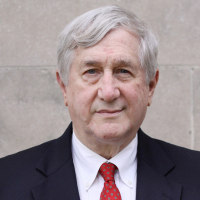 Tylerton Misdemeanor Lawyers, Maryland
Tylerton Misdemeanor Lawyers, Maryland
Sponsored Law Firm
-
 x
x

Click For More Info:
-
Roper & DiBlasio LLP
401 Headquarters Dr Ste 202 Millersville, MD 21108» view mapDivorce and Family Law Our Mission is Your Success
Roper & DiBlasio is a general practice law firm working within the local community to assist businesses, homeowners, and individuals with their legal needs.
800-785-7781
Not enough matches for Tylerton Misdemeanor lawyer.
Below are all Tylerton Criminal lawyers.
Sponsored Lawyers
1-10 of 39 matches
Criminal, Divorce & Family Law, Motor Vehicle, Accident & Injury, Wills & Probate
Owner and managing attorney of the Law Office of Harold S. Link, which has been affording quality legal services at an affordable price for more than 30 years. Graduate of the University of North Carolina at Chapel Hill and the University of Baltimore School of Law, with 15 years of experience in the insurance industry.
(more)Criminal, Divorce & Family Law, Car Accident
For Mr. Mattingly, there is nothing more satisfying than helping others in need. After obtaining his degree from Undergraduate Catholic University in 1984, he attended law school at the University of Maryland to further his education. After graduating from law school in 1987, he established his own practice, and has had the honor of providing you with top-rated legal services for the past 25 years.
(more)


 Kurt Roper Millersville, MD
Kurt Roper Millersville, MD Practice AreasExpertise
Practice AreasExpertise


